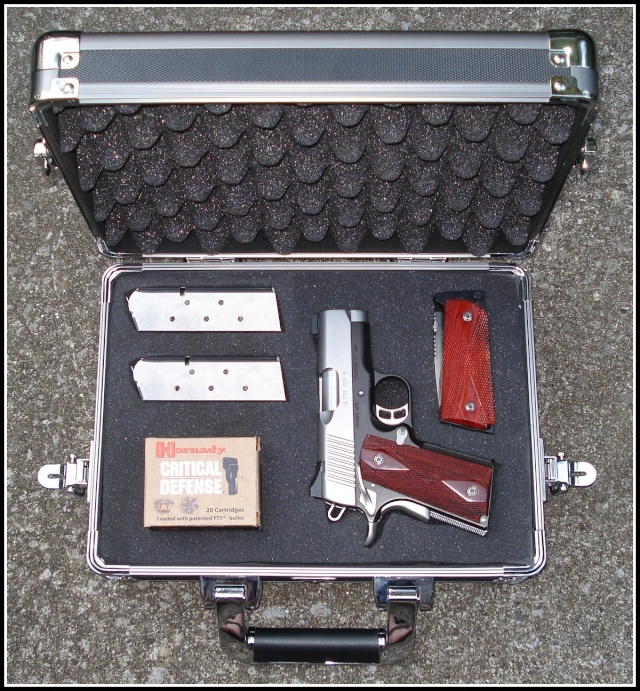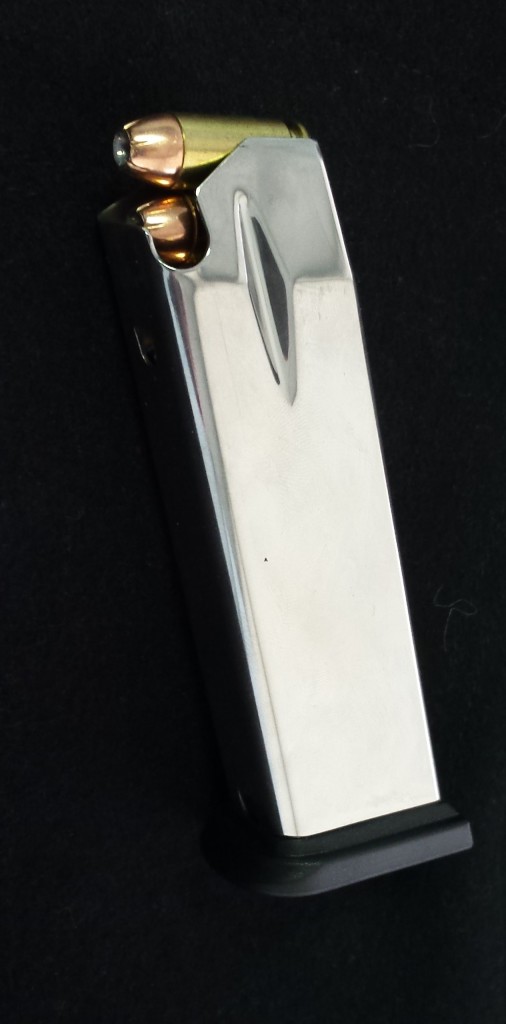
http://pitstopsforkids.com/wp-content/uploads/2009/04/interstate-map21.jpg
Interstate travel has always been difficult for law abiding gun owners (LAGOs). Firearm laws vary drastically from state to state, and sometimes from city to city, depending upon the state’s preemption laws.
For the traveling LAGO, 18 U.S.C. §922 has served as a safety net for the last twenty five years, so long as you are merely passing through a state with strict gun laws. The federal law reads in full:
Notwithstanding any other provision of any law or any rule or regulation of a State or any political subdivision thereof, any person who is not otherwise prohibited by this chapter from transporting, shipping, or receiving a firearm shall be entitled to transport a firearm for any lawful purpose from any place where he may lawfully possess and carry such firearm to any other place where he may lawfully possess and carry such firearm if, during such transportation the firearm is unloaded, and neither the firearm nor any ammunition being transported is readily accessible or is directly accessible from the passenger compartment of such transporting vehicle: Provided, That in the case of a vehicle without a compartment separate from the driver’s compartment the firearm or ammunition shall be contained in a locked container other than the glove compartment or console.
Because this is a federal law, it holds authority over any other state or local laws. However, because of certain ambiguities in the statute, some provisions have been left open to interpretation.
For instance, the statute states that the firearm must be “unloaded.” What does unloaded technically mean? It is not defined by the statute itself. In 2006, a man was traveling through Maryland with his Glock 19 in his trunk. While the magazine was in the receiver and contained rounds, there was not a round in the chamber. In the civil suit that ensued following criminal charges, the United States District Court determined that for purposes of §926A, the handgun was in fact “loaded.” McDaniel v. Arnold 898 F.Supp.2d 809 (2012).
Also, some states have interpreted that the travel must be nothing short of continuous. That, to them, means no stopping off for a bathroom break, overnight lodging, for food, for gas, and we have heard through rumor of a prosecution when there was a flat tire.
Recently, United States Representative Morgan Griffith (R-Va.) introduced H.R. 131 which would address some of the statute’s ambiguities and provide further guidance for traveling LAGOs. While the definition of “loaded” is not addressed, the bill seeks to amend 926A. Depending upon your present interpretation of the federal law, the amendment either clarifies or extends the protections presently afforded to traveling LAGOs.
First, the new amendment would read “the term `transport’ includes staying in temporary lodging overnight, stopping for food, fuel, vehicle maintenance, an emergency, medical treatment, and any other activity incidental to the transport . . . .” This is important. Under the current state of the law, it is understood that travel must be “continuous” in order for the protections of 926A to apply. To stop for an extended period of time could render the traveler subject to state and local laws, as the act of transportation has ceased. At which point transportation ceases, however, is unclear at present. Stops for gas and restroom breaks seem trivial. Stops for meals seem more significant. In gun unfriendly states, an overnight stay seems downright dangerous given the present state of the law. Regardless, because the statute is somewhat ambiguous and there is no uniform binding authority from the Court, many of these situations are open to interpretation. The proposed amendment would seemingly solve that problem.
Additionally, in practice, 926A serves as an affirmative defense. If raised by a defendant, an affirmative defense “will negate criminal or civil liability, even if it is proven that the defendant committed the alleged acts.” Wex Legal Dictionary. Usually, a defendant bears the burden to prove his or her affirmative defense. In the context of 926A, this means that if a LAGO is charged with an offense under local firearms laws, he must raise the federal law, and prove that the federal protections apply to his facts and circumstances in order to be cleared. In reality, this can pose a significant hardship upon LAGOs who are within the protections of 926A, yet still face charges.
The proposed amendment seems to combat this problem as well. Specifically, it reads:
A person who is transporting a firearm or ammunition may not be arrested or otherwise detained for violation of any law or any rule or regulation of a State or any political subdivision thereof related to the possession, transportation, or carrying of firearms, unless there is probable cause to believe that the person is doing so in a manner not provided for in subsection (a).
Even further, it states that “when a person asserts this section as a defense in a criminal proceeding, the prosecution shall bear the burden of proving, beyond a reasonable doubt, that the conduct of the person did not satisfy the conditions set forth in subsection (a).” Moreover, the amendment provides for attorney fees if a defendant ultimately falls within the protections afforded by 926A.

http://i41.servimg.com/u/f41/14/51/12/47/travel13.jpg
Lastly, the bill addresses civil remedies for LAGOs who are within the protections of 926A, but nevertheless charged. In the past, courts have been unwilling to provide civil relief to victims of law enforcement misunderstandings pertaining to 926A, as it did not provide a private cause of action. The language of the new amendment reads “A person who is deprived of any right, privilege, or immunity secured by this section, section 926B or 926C, under color of any statute, ordinance, regulation, custom, or usage of any State or any political subdivision thereof, may bring an action in any appropriate court against any other person, including a State or political subdivision thereof, who causes the person to be subject to the deprivation, for damages and other appropriate relief.” Under this private right, a successful plaintiff “shall” be awarded damages, fees, and other appropriate forms of relief. The purpose seems to be to deter charges or prosecution in line with more narrow interpretations of 926A.
A similar amendment was proposed in 2012 by Griffith, Ted Poe (R-TX) and Bill Owens (D-NY), but was never passed.
 Legally speaking, it would be helpful if Congress passed a law clarifying the protections of 926A, even if these clarifications did not necessarily “extend” those protections. One of the most important requirements a LAGO faces is understanding the law. It is difficult to follow the law if you are unable to determine what protections it affords, or which demands it imposes. This same principle also applies to law enforcement officers, prosecutors, and judges. The more clearly Congress states the rules of the game, the easier it is for each player to play within the rules.
Legally speaking, it would be helpful if Congress passed a law clarifying the protections of 926A, even if these clarifications did not necessarily “extend” those protections. One of the most important requirements a LAGO faces is understanding the law. It is difficult to follow the law if you are unable to determine what protections it affords, or which demands it imposes. This same principle also applies to law enforcement officers, prosecutors, and judges. The more clearly Congress states the rules of the game, the easier it is for each player to play within the rules.
Unless and until this law is passed, it is vital for LAGOs to understand 926A in its present state, and to abide by its strictest possible interpretations to avoid the possibility of criminal penalties or a lot of unfortunate and unearned hassle.


